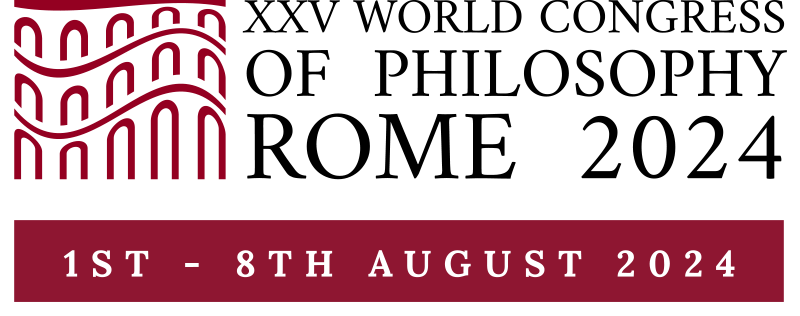Philosophical Dialogues about Critical Societal Questions.
Ever since Plato, a popular form of philosophizing has been a dialogue with a limited number of people about fundamental questions. The idea of philosophical dialogue rests on the conviction that true insight is not a monolithic and complete whole that could be possessed by one person (the expert) but emerges gradually as an “in-between” through the exchange of ideas between genuinely interested persons. The World Congress of Philosophy wishes to pick up the thread of this tradition by introducing the format of dialogic sessions about critical societal questions.
There will be dialogic sessions about five critical societal questions, viz. trust, republicanism, the role of women in developing countries, tolerance in a multicultural world, and hospitality in a global world. Each session consists of a technical chair who will lead the dialogue, an expert who introduces the questions to be discussed, and a limited number of participants who are invited to share their views on these questions. The themes and questions of the sessions do not require specific expertise or technical philosophical knowledge from the participants. Rather, the participants are invited to dialogue about the leading questions from their own philosophical, political, and sociocultural backgrounds. To have a lively and fruitful dialogue, there is a maximum of ten participants (the expert and the chair not included) per session, and the time slot is two hours.
Interested participants can register for a session beforehand through an email to the secretariat of the WCP (secretariat@wcprome2024.com) or simply show up at the start of a session (first come first served). For further inquiries, please contact Peter Jonkers, the coordinator of the dialogic sessions (p.h.a.i.jonkers@tilburguniversity.edu).
Session 1: To trust or not to trust?
Saturday, August 3: 9.00-11.00
Room:
Introduction: Prof. dr. Maria Baghramian
Chair: Prof. dr. Peter Jonkers
- What is trust? how is it exercised and recognised?
- Is trust as important as many have claimed? Why? Can we do without it? What about distrust? Do we also need to exercise and encourage distrust?
- Who should we trust? The obvious answer is “the trustworthy”. But, how do we decide who is trustworthy? Are there general conditions of trustworthiness?
- Is public trust (trust in political institutions, politicians, science, etc) different from personal trust? Why and how?
5: What are the connections between trust and democratic political systems? Can we still have trust in Democracy?
Session 2: Republicanism
Monday, August 5: 9.00-11.00
Room:
Introduction: Prof. dr. Chrys Mantzavinos
Chair: Prof. dr. Peter Jonkers
- What is the role of institutions in serving freedom?
- Is freedom the most important value?
- What are the virtues of contestatory democracy?
- What kind of institutions should be set so that neither government power nor private economic power becomes excessive?
Session 3: The role of women in emerging countries
Tuesday, August 6: 9.00-11.00
Room:
Introduction: Prof. dr. Asha Mukherjee
Chair: Prof. dr. Peter Jonkers
- Why do girls/children drop out?
- How many women contribute to the world economy?
- How is the disaster of capitalism related to the struggles of women?
- Are women to be considered as social wealth to emancipate humanity?
- Do women have the right to pension?
Session 4: Hospitality in a global world
Wednesday, August 7: 9.00-11.00
Room:
Introduction: Prof. dr. William Sweet
Chair: Prof. dr. Peter Jonkers
- Is hospitality a duty? / Is welcoming refugees/those who immigrate a duty? A virtue?
- Is everyone entitled to hospitality, or only members of some groups (e.g., refugees, those who wish to immigrate)?
- What, if any, are the moral obligations (as distinct from legal obligations) on those who immigrate/arrive in another country?
- Does hospitality bear on the issue of the arrival and presence (of descendants) of “colonizers.”
Session 5: Tolerance in a multicultural world
Thursday, August 8: 9.00-11.00
Room:
Introduction: Prof. dr. Peter Jonkers
Chair: Prof. dr. Joseph Agbakoba
- Nowadays, tolerance (an individual or societal virtue) is more needed than before because societies are becoming more multicultural and fractured. Yet, recent sociological surveys show that, at least in Western Europe, there is a growing intolerance against some cultural practices, thus indicating a shift away from a multicultural toward an assimilative society. Do you see this evolution in your society too?
- Most researchers distinguish between the individual or social practice of tolerance and toleration as the legal framework. However, since the modern state has become neutral regarding the variety of lifestyles, the concept of toleration is nowadays more or less obsolete. Hence, what remains is the need for tolerance in a multicultural world. How do you see the relationship between tolerance and toleration?
- If tolerance is to be distinguished from indifference, it requires an adequate and convincing normative justification. This raises a few thorny questions: In the name of who or what are we entitled to grant or to limit toleration? Is there only one context of justification?
- The experience of the intolerable is essential for tolerance because this experience has a reawakening effect in a culture without precise moral reference points, thus preventing tolerance from sliding into moral relativism. How do you see the relationship between tolerance and the intolerable?

